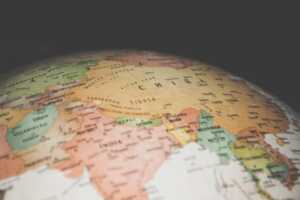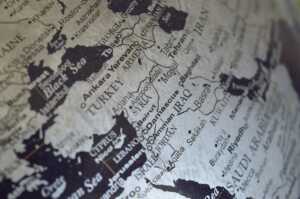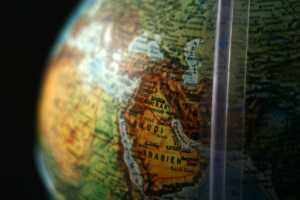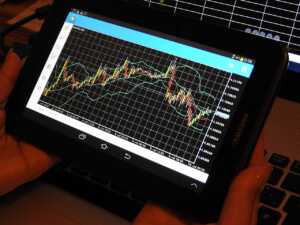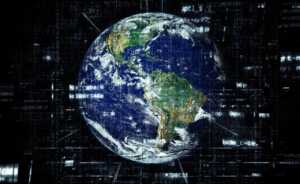In a rapidly changing global environment, understanding Europe’s influence is crucial for political analysts, history enthusiasts, and global affairs scholars. Europe has long been a significant player on the world stage, wielding power through its historical alliances and contemporary institutions. This blog post explores the multifaceted role of Europe in global geopolitics, providing insights into its challenges, opportunities, and future prospects.
The Historical Roots of European Influence
Europe’s geopolitical influence is deeply rooted in its history. The continent was the birthplace of both world wars, which reshaped international borders and political systems. Additionally, European empires once spanned the globe, leaving behind a legacy that continues to affect international relations today. Understanding this historical context is essential for comprehending Europe’s current role in global affairs.
Today, Europe’s significance is not just a remnant of its past; it continues to play a pivotal role in shaping global policies. The European Union (EU), NATO, and other institutions are testaments to Europe’s ongoing commitment to promoting peace, stability, and economic cooperation. These bodies not only influence their member states but also have far-reaching impacts on non-member countries worldwide.
Europe’s rich history provides a foundation upon which its modern geopolitical strategies are built. By examining past events and their outcomes, we can better appreciate the complexities of Europe’s current geopolitical stance and anticipate its future moves on the global stage.
Europe’s Role in Shaping Global Alliances
Europe has been instrumental in forming and sustaining key international alliances. Organizations like the EU and NATO are central to global cooperation efforts, addressing issues ranging from trade and security to human rights and climate change. These alliances enable Europe to maintain a strong presence in global decision-making processes.
The EU, with its 27 member states, represents a unique supranational entity that promotes economic integration and political coordination. It has become a model for regional cooperation, influencing other parts of the world to pursue similar collaborations. The EU’s policies and regulations often set global standards, affecting international trade and industry practices.
NATO, on the other hand, focuses on military cooperation and security. As a transatlantic alliance, it fosters collaboration between European countries and the United States, enhancing collective defense capabilities. This partnership is crucial for ensuring global stability and addressing emerging security threats, such as cyber warfare and terrorism.
Geopolitical Challenges and Opportunities
In the 21st century, Europe faces numerous geopolitical challenges and opportunities. Economic integration remains a primary goal, with efforts to harmonize fiscal policies and promote sustainable growth. However, disparities between member states and external economic pressures pose significant obstacles to achieving these objectives.
Security concerns also demand attention, as Europe grapples with threats like terrorism, cyberattacks, and regional conflicts. Strengthening security frameworks and fostering cooperation among member states is vital for maintaining peace and stability within the continent and beyond.
Migration presents another complex challenge, as Europe experiences an influx of refugees and migrants seeking better opportunities. Balancing humanitarian responsibilities with economic and social integration is crucial for addressing this issue. Developing comprehensive migration policies will help ensure the successful integration of newcomers into European societies.
The Impact of Brexit on Europe’s Geopolitical Influence
Brexit has undoubtedly altered Europe’s geopolitical landscape. The United Kingdom’s departure from the EU has had significant implications for both parties, affecting economic relations, political alliances, and global influence. Understanding these effects is essential for assessing Europe’s future role in international affairs.
Economically, Brexit has introduced uncertainties in trade and investment. The UK must now establish new agreements with EU member states and other global partners, while the EU adjusts to the loss of one of its largest economies. These changes will have lasting impacts on the region’s economic stability and global competitiveness.
Politically, Brexit has shifted power dynamics within the EU. Remaining member states must adapt to the absence of the UK’s influence, while the EU seeks to maintain cohesion and unity. This situation presents both challenges and opportunities for Europe to redefine its geopolitical strategies and strengthen its global presence.
Comparing Europe’s Influence with Emerging Powers
Europe’s geopolitical influence is often compared to that of emerging powers like China and India. These countries have experienced rapid economic growth and increased political clout, challenging traditional power structures and reshaping global dynamics. Analyzing this competition helps us understand Europe’s position in the world.
China’s Belt and Road Initiative exemplifies its ambitions to expand its influence through infrastructure development and trade. This project connects Asia, Europe, and Africa, presenting both opportunities and challenges for European countries. Collaborating with China can boost economic growth, but it also raises concerns about dependency and strategic interests.
India, with its burgeoning economy and growing global presence, is another key player in the geopolitical arena. Its strategic location and democratic values make it an attractive partner for Europe, fostering cooperation in areas like trade, technology, and climate change. Strengthening ties with India will help Europe maintain its relevance in a multipolar world.
Future Prospects for Europe’s Role in Global Affairs
Looking ahead, Europe’s role in global affairs will depend on its ability to adapt and innovate. To maintain or enhance its influence, Europe must address internal challenges and seize opportunities for collaboration and growth. Strategic planning and proactive policies will be essential in navigating the complexities of the modern geopolitical landscape.
Strengthening alliances and fostering multilateralism will be crucial for Europe to remain a key player in global politics. By working closely with international partners, Europe can address pressing issues like climate change, security threats, and economic disparities, ensuring a more stable and prosperous world.
Investing in innovation and technology will also be vital for Europe’s future success. By supporting research and development, Europe can stay at the forefront of technological advancements and capitalize on emerging industries. This approach will not only boost economic growth but also enhance Europe’s global competitiveness and influence.
Conclusion
Europe’s influence in global geopolitics remains significant, driven by its historical legacy, strategic alliances, and adaptability. By understanding the challenges and opportunities it faces, we can better appreciate Europe’s role in shaping the future of international relations. Engaging in further discussion and analysis will help us anticipate Europe’s moves on the global stage and ensure its continued relevance in an evolving world.

